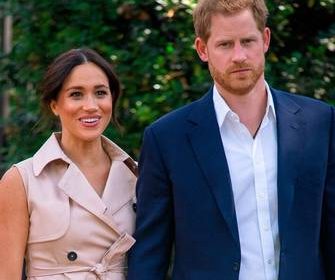The Royals urge people to talk about their feelings yet want Harry and Meghan to grin and bear it

Back in 2017, Prince Harry sat down for an interview with the Telegraph’s Bryony Gordon to discuss his mental health struggles following his mother’s death. He admitted that he “shut down all of [his] emotions” for 20 years after Diana died, revealing he sought counselling to help him come to terms with his grief. The reaction to Harry’s candour was rapturous: he was “extraordinarily brave”, he was “blazing a trail”, “breaking taboos” and “redefining strength and dignity for a new generation”. It was hailed as a watershed moment in ending mental health stigma, bolstered by his work with brother Prince William and sister-in-law Kate Middleton through their charity Heads Together, set up in 2016 to change the conversation around mental health.
Fast forward two years, and the events of recent weeks beg the question: how have they fallen so far backwards?
Please log in or register with Independent.ie for free access to this article.
Log In
New to Independent.ie? Create an account
In the ITV documentary about Harry and his wife Meghan Markle’s visit to southern Africa earlier this month, the royal opened up again on the pressures he faces: “It’s constant management. I thought I was out of the woods and then suddenly it all came back and I realised that this is something I have to manage. Part of this job, part of any job, means putting on a brave face and turning a cheek to a lot of stuff. But for me and for my wife, there’s a lot of stuff that hurts.” The programme followed an emotional speech Harry gave at the WellChild awards, in which he welled up speaking about his son, Archie.
Later in the documentary, Meghan was asked about her experience of the intense media scrutiny. She said that “not many people have asked if I’m okay” and explained: “I really tried to adopt this British sensibility of a stiff upper lip… but I think what that does internally is probably really damaging.”
This was a step too far. Harry and his wife were no longer “brave” or “redefining strength and dignity”; instead, they were deemed too open, too raw, too American and far, far too emotional. Critics advised them to “put up and shut up”, to keep their heads down and “stop whingeing”, calling for a return to the tradition of “never complain, never explain”.
What was even more revealing was how other royals responded: Prince William – who has praised figures like Rio Ferdinand and Stormzy for speaking out, and warned that no one should keep a stiff upper lip “at the expense of your health” – sent his aides running to the BBC to say he is “worried” about his brother, whom he feels is “in a fragile place”. He isn’t “proud” of his brother, he isn’t “glad he had spoken out”, he isn’t “all too aware of how hard it can be”. The judgement is palpable – that Harry, unlike his strong, stoic older brother, has been unable to ‘man up’ and ‘rise above’ the barrage of criticism and racist attacks on his family.
A palace source told the Times that the Queen and other senior royals are “very worried” about Harry and Meghan, with the addendum: “These are conversations that should take place privately. It is not a topic to be played out in public.”
The stigma was clear as day: discussion of mental health ought to remain behind closed doors, and those who bring it into the light of day, particularly men, are merely weak and unstable.
For viewers, particularly young people, Harry’s honesty was refreshing – anyone who has experienced mental health problems knows they are an ongoing challenge people need to work on, not something that can be neatly resolved and wrapped up with a bow. And Meghan’s comments about a lack of support resonated powerfully with new mothers and black women more generally.
But for the royals, it seems, one admission of vulnerability is quite enough, and there’s no need to keep banging on about it. Which is all the more remarkable given the younger royals have made mental health their pet project.
Just a few weeks ago, William, Kate, Harry and Meghan joined forces for the Every Mind Matters campaign, which aims to give people the skills to manage their mental health. In August, William announced Heads Up, a new initiative from Heads Together and the Football Association “to generate the biggest ever conversation around mental health”, and in May, the foursome launched Shout, a text service for people facing a mental health crisis. “You can have a conversation anywhere, at anytime: at school, at home, anywhere,” William said at the press conference.
Their response to Harry and Meghan’s “conversation” about mental health makes all of this look so much like empty posturing. If the royals are going to continue encouraging people to talk, then they’ll need to learn to listen.
- Meadhbh McGrath co-hosts the royal podcast HeirHeads, available on Apple Podcasts, Spotify, TuneIn and Stitcher
Source: Read Full Article